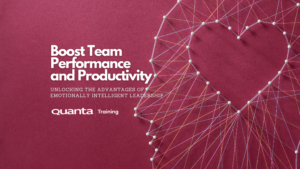Learn to query and programme using SQL Server
This course will allow delegates to understand and use Transact SQL for both querying and programming (Q&P) in a Microsoft SQL Server environment. Additionally, this course is suitable for all versions of SQL Server.Book Your Course
Start Date
Venue
Availability
Course confirmed - Guaranteed to run
Course Full/Limited availability
Price shown excluding VAT.
Book a Private Event
If you require the content of this event tailored or have around 7 or more people to train it maybe better for you to host a Private Event, please get in touch to discuss this.
Get in touchDescription
Who is this course for
Database developers and support personnel who need to be able to query and programme SQL Server databases using Transact SQL. The course is also suitable for application developers (Visual Basic, C#, etc.) who need to query SQL Server databases.
Purpose of the course
This course covers important Transact SQL features such as data types, joins, sequences, subqueries, indexes and views. It includes creating stored procedures, user defined functions and triggers. Exercises are included to consolidate the skills taught.
You will learn how to
Write Transact SQL queriesDevelop stored procedures
Use inner, outer and cross joins
Use many advanced Transact SQL syntaxes
Build indexes to improve query performance
Control locking and consistency through transactions
Prerequisites
Delegates must have a good understanding of relational databases. This can be obtained by attending our SQL Server Essentials course. Delegates must also have a basic knowledge of Microsoft Windows.Benefits for you as an individual
Many roles now require knowledge of SQL Server. This course will equip you with the skills to understand and use Transact SQL. You will have confidence to develop queries and programmes in Transact SQL.
Benefits for your organisation
SQL Server is becoming an increasingly popular choice for enterprise wide applications. This course will give your organisation the ability to develop both Transact SQL queries and programmes. These queries and programmes will often be used as the basis of corporate reports.
Introduction to Databases
- Database Basics
- Data Types
- Using SQL Server Management Studio
- SQL Batches and the GO Command
Querying and Updating the Database
- Selecting Data
- Selecting Columns from a Table
- Inner, Outer and Cross Joins
- Overview of Graph Database
- Union, Intersect and Except
- Updating, Inserting and Deleting Data
- Merging Data
- Recording Changes
Data Warehouses
- Overview of Data Warehouses in SQL Server
- Star Schemas
- SQL Querying for Data Warehouses
- Overview of Inmon and Kimball Methodologies
Tables
- Creating & Altering Tables
- Creating and Updating a Table with Transact SQL
- Dropping Tables
- Temporal Tables
Using Variables and Functions
- Variables
- Functions
- Scalar Functions
- Aggregate Functions
- Splitting, Aggregating and Trimming Strings
Programming with Transact SQL
- Stored Procedures
- Creating Stored Procedures
- Executing Stored Procedures
- Controlling Flow of Code
- User Defined Functions
Advanced Querying
- Subqueries
- Grouping and Summaries
- Views
- Common Table Expressions
- Pivot Tables
- Ranking Functions
- Window Functions
Optimisation
- Designing Indexes
- Creating an Index
- Creating an Index on a View
- Viewing the Execution Plan
- Putting the Performance Tools to Use
Advanced Programming with Transact SQL
- Temporary Tables
- Declaring a Variable with the Table Datatype
- Dynamic SQL
- Cursors
Introduction to SQL Server Support for XML
- Introduction to XML
- XML Casting
- FOR XML
- Overview of SQL Server Support for JSON
Data Integrity
- Error Handling
- Try... Catch Block
- Transactions and Locks
- Triggers
- Triggers in Management Studio
Real World Development
- Writing SQL for Reporting Tools
- Troubleshooting
- Other SQL Server Technologies
- Best Practices
Get Started
Forget trawling through endless course catalogues – Find the training that’s right for you
Learn MoreLatest from our blog
Kanban and Agile: Bridging the Gap
Kanban and Agile: Bridging the Gap Quanta’s Kanban University Certified Trainer Steve Church explores the way in which Agile and…
Read More
How a Ballerina could move into Cybersecurity
Jason Ford, Quanta Cybersecurity and IT Trainer talks about the limitations in Cybersecurity Training courses. Jason discusses a safe and…
Read More
Boost Team Performance and Productivity: Unlocking the Advantages of Emotionally Intelligent Leadership
Quanta People Development and Leadership Trainer, Giles Collins outlines the key elements of Emotionally Intelligent Leadership and how it impacts…
Read More




